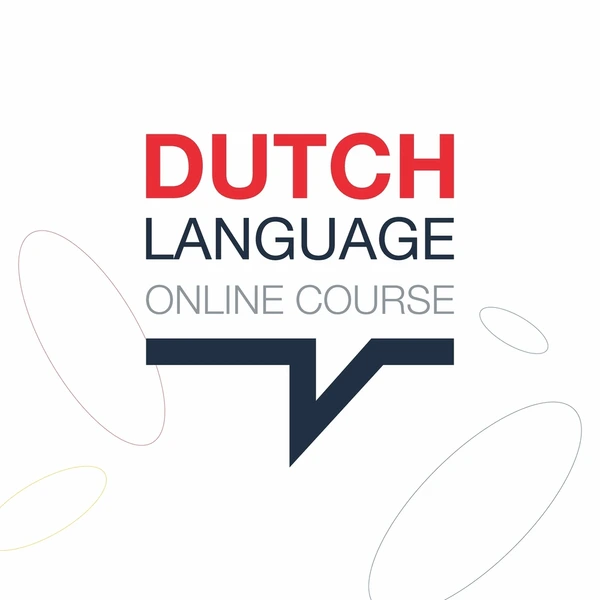Therefore, choosing the Best Dutch Language Course can open doors to a wealth of opportunities. The Best Dutch language Course offers a comprehensive approach as well as combines grammar, vocabulary, and cultural insights. It also helps you to become fluent in both written and spoken Dutch Language.
Whether you prefer interactive or in-person classes, the flexibility of online learning in these courses is designed to guide you from basic phrases to advanced conversations. Some focus on NT2 certification for those aiming to work or study in the Netherlands, which is conversational fluency for everyday use. It explores a variety of highly rated Dutch Language Training in Watts Education, highlighting their key features, learning formats, and the specific advantages they offer.
Key Points On How To Choose Best Dutch Language Course Near Me
1. Check Accreditation and Affiliations
- Ensure the course is offered by a recognized institution or school. Accreditation by a reputable language body ensures that the curriculum meets quality standards.
- Some programs may have partnerships with Dutch universities or cultural organizations, adding credibility as well as ensuring you receive a globally recognized certification.
2. Look for an Internship or Job Support
- Internships: Some advanced courses offer opportunities for language immersion through internships and work placements in Dutch-speaking environments. Check if the program connects you to internships that allow you to practice Dutch in real-life situations.
- Career or job support: If you’re learning Dutch for professional purposes, then the course offers job placement assistance, networking opportunities, or certifications that can boost your career prospects.
3. View Course Syllabus
- Progressive structure: Look for a course that progresses from beginner to advanced levels, allowing for continuous learning. The syllabus should gradually build your vocabulary, grammar, and conversational skills.
- Specialized modules: Some courses offer specialized lessons focused on business Dutch, travel, and other specific needs. Choose a course that is set with your goals.
4. Experienced and Qualified Instructors
- Verify the qualifications and experience of the instructors, whether native Dutch speakers or instructors certified in teaching.
- Dutch as a second language is often preferred. Check for positive feedback or testimonials about the teaching staff to ensure they are effective and approachable.
5. Evaluate Course Providers
- Reputation: Look for reviews, testimonials, and success stories from previous students who were taking classes. You can check online platforms like Google reviews, social media, and language-learning forums.
- Certification: Does the course offer a recognized certification after completion? This can be useful for employment or academic purposes.
- Qualified Instructors: Check if the instructors are native speakers or well-experienced in teaching Dutch as a second language.
- Methodology: Research their teaching style. Some courses emphasize grammar, while others focus on practical conversation. Pick anyone that matches your learning style.
6. Location and Schedule
- Convenience: Choose a course that’s easily accessible if you’re looking for in-person classes. Proximity matters to avoid travel issues.
- Flexible Timing: Look for courses that provide flexible class schedules and timing, especially if you have other commitments. Some places offer evening or weekend sessions.
How to Find Online Dutch Courses?
Some are the following platforms are :

- Google Search: Look up terms like “Dutch language course near me” or “Dutch classes in the city.
- Local Universities: Many offer evening or continuing education courses for language learners.
- Cultural Centers and Libraries: Check local Dutch cultural organizations or groups that lead language classes.
- Social Media: Facebook groups might have listings for Dutch language learning events or courses.
Benefits of Learning the Best Dutch Language
The best Dutch language courses can offer numerous benefits that go beyond just learning the language. These courses are designed to enhance your communication skills, cultural understanding, and even career opportunities.
Here’s a look at the key benefits of choosing a Dutch language course:
- Communication Skills: A well-structured course helps you to achieve fluency in speaking, reading, writing, and listening in Dutch. It also allows you to communicate easily in a casual and professional way.
- Cultural Integration: Learning a Dutch Language Course is also about immersing yourself in the culture. Dutch language courses often incorporate lessons on Dutch traditions, customs and social norms, helping you adapt better if you plan to live or work in the Netherlands.
- Career Advancement: Dutch language can improve your career prospects, especially if you are seeking employment in the Netherlands or in international companies that require Dutch language skills. Many advanced Dutch courses prepare you for the NT2 exam, which is often required for jobs, residency or higher education.
- Academic and Professional Growth: Dutch language proficiency is necessary for pursuing higher education in the Netherlands. Many universities require a certain level of Dutch for admission, which is taught in Dutch.
Watts Education Dutch Language Course

Watts Education refers to the educational landscape and resources available in the neighborhood of Los Angeles, California. It offers courses designed to help learners at various proficiency levels i.e. from beginners (A1) to advanced (C2). Both theoretical and practical knowledge helps learners achieve fluency and pass proficiency exams. This course is aligned with the Common European Framework of Reference and offers structured learning paths from A1 (beginner) to C2 (advanced). Students can choose various course formats, i.e. group classes, one-on-one tutoring and fast-track options, making it suitable for different learning methods and schedules. Watts Education also offers specialized courses aimed at preparing students for Dutch proficiency exams like NT2. Interactive learning approaches such as conversational practice and multimedia tools help language use in real-world situations.
- Watts Education, offers the best Dutch Language Courses taught by certified and experienced native speakers with high-quality instruction. Teachers may offer live sessions, one-on-one tutoring as well as pre-recorded video lessons.
- The best online courses follow the CEFR (Common European Framework of Reference for Languages) which means they offer structured lessons from A1 (beginner) to C2 (proficient) levels.
- Some courses integrate Dutch culture and real-life scenarios to enhance language learning in Dutch-speaking regions.
- Online Dutch courses are often more affordable than in-person classes, and many offer free trials or flexible payment options. Moreover, they eliminate the need to commute, allowing for global participation.
Conclusion
When choosing the best Dutch language course near me, it’s important to follow several factors, including the teaching methodology, course flexibility, certification, and instructor expertise. Platforms like Watts Education offer personalized, instructor-led courses with flexible learning schedules and exam preparation. It also helps in making a great option for learners seeking a structured, flexible experience. Similarly, other popular platforms provide unique approaches, such as interactive learning and one-on-one tutoring.
The ideal course will depend on your individual needs, whether you want a more intensive, live-taught experience and a self-paced program with ample resources. Evaluate your language goals, schedule, and preferred learning style to select the most suitable course.
FAQs
Answer– To learn the Dutch language online is through structured courses that offer a combination of listening, speaking, reading and writing. It also provides interactive lessons, access to native speakers and courses aligned with CEFR standards. Examples – Watts Education.
Answer: It includes the curriculum (CEFR) or the quality of instructors, flexibility in class schedules and whether the course offers official exam preparation like NT2.
Answer: This depends on several factors, such as the duration of the course, language learning experience and how much time you dedicate to doing practice. Learners can expect to learn conversational fluency (B2 level) between 6 to 12 months with regular study.
Answer: Yes, there are free options available. However, paid courses such as those from Watts Education offer more comprehensive lessons and support from professional instructors.


